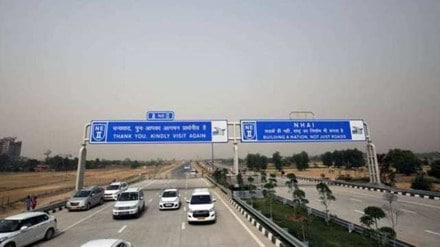Amid the National Highways Authority of India (NHAI)’s increasing debt servicing burden, contingent liabilities and dependence on budgetary support, the government think-tank Niti Aayog has floated a request for proposal (RFP) from consultants to devise an action plan to improve its functioning.
With aggressive highway expansion after the Narendra Modi government came to power in 2014, NHAI’s debt rose from Rs 23,797 crore in March 2014 to Rs 3.48 trillion in March 2022. This led to a surge in debt servicing burden which stood at Rs 31,735 crore in FY23.
High debt forced the Centre to halt fresh borrowing by the highway maker in FY23 and FY24. As a result, the budgetary support to it rose to a whopping Rs 1.99 trillion in FY23, 3.5 times higher than Rs 57,350 crore in FY22.
Also read: India’s ‘Green Revolution’ 2.0! Gadkari’s mantra for new-age infra – Bio bitumen and beema bamboo
“NHAI’s abilities to continuing servicing its increasing debt burden and meet its stated highway development targets require closer examination,” Niti Aayog’s Development Monitoring and Evaluation Office (DMEO) said in the RFP seeking suitable consultants for the conduct of an “Evaluation Study of road projects and the functioning of the National Highways Authority of India.”
Interested applicants have to submit their RFP on or before June 12, 2023.
Besides high debt, NHAI also has contingent liabilities, most of which are from disputed claims filed by contractors/developers. As of March 31, 2020, NHAI had contingent liabilities of Rs 71,765 crore.
The objective of the study is to assess key performance pillars such as relevance, effectiveness, efficiency, financial viability and sustainability of NHAI in the context of the external environment, internal motivation and capacities of the institution.
The terms of reference (ToR) for the study incudes financial viability of NHAI to meet short- and long-term liabilities, raise funds efficiently, existence of diversified streams of revenue, mechanisms in place to mitigate financial risk and having processes and practices in place for planning and forecasting. The consultant will also assess the asset monetisation strategy of NHAI with regards to the percent of revenue from asset monetisation, strategy for bundling stretches, reasons for successful and unsuccessful bundles and assessment of InvITS.
NHAI is mandated to implement the National Highways Development Project (NHDP) to upgrade and strengthen National Highways through seven phases. In addition, under the Bharatmala Yojana (BMP) Phase 1, NHAI has a mandate to develop 22,660 km out of the 24,800 km length which includes economic corridors, inter corridor routes, expressways, national corridors, coastal and port connectivity roads, border and international connectivity roads. The Phase 1 of the BPM also includes construction of 10,000 km of residual stretches from the NHDP which brings the total to 34,800 km. The Phase 1 of the BMP was expected to be completed by FY2021-22 at an estimated cost of Rs 5.35 trillion. This is now revised to be completed by 2026-27 at a cost of Rs 10.63 trillion.
